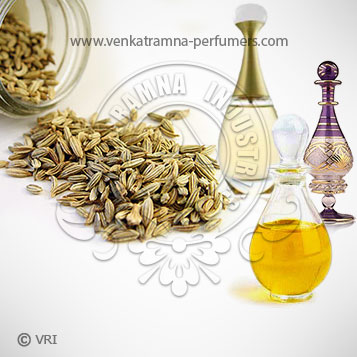
| Botanical Name | Foeniculum vulgare dulce |
| Common Name | Foeniculum Vulgare, Fennel Seeds, Saunf |
| Country of Origin | United States, Canada, Australia |
| Solubility | soluble in water, insoluble in oil |
| Specific Gravity | 25 C : 0.953 To 0.975 |
| Optical Rotation | +11.00 to +24.00 |
| Refrective Index | 1.52800 to 1.54300 @ 20.00 °C |
| PlantPart | Seed |
| Bland With | Not Applicable |
| CAS No | Not Applicable |
| Flash Point | 168.00 °F |
| Extraction Method | Not Applicable |
This oleoresin is obtained by solvent extraction of the fennel seeds with the subsequent removal of the solvent. The extracts of fennel has anti-toxic properties and finds most valuable application in counterbalancing alcoholic poisoning. It has played an important part in the treatment and rehabilitation of alcoholics. The dark brown liquid has the characteristic odour and flavour of Sweet Fennel.
known as Fenkle in the Middle Ages, its name is from the Latin 'foenum' meaning 'hay'. The ancients believed it gave one longevity, courage and strength, and warded off evil spirits. Not only did they use it to strengthen the eyesight, but also for snakebite, colic, and fleas.
Color : Light spicy and soft licorice,
Aroma : Fennel Sweet Essential Oil has a spicy, sweet scent.
Volatile oil content: 16-21 ml / 100g Residual solvent: <15 ppm
Fennel oleoresin is attributed with being an antiseptic, expectorant, carminative, laxative, diuretic, stimulant, stomachic. It is commonly used in food processing industry as a spice.